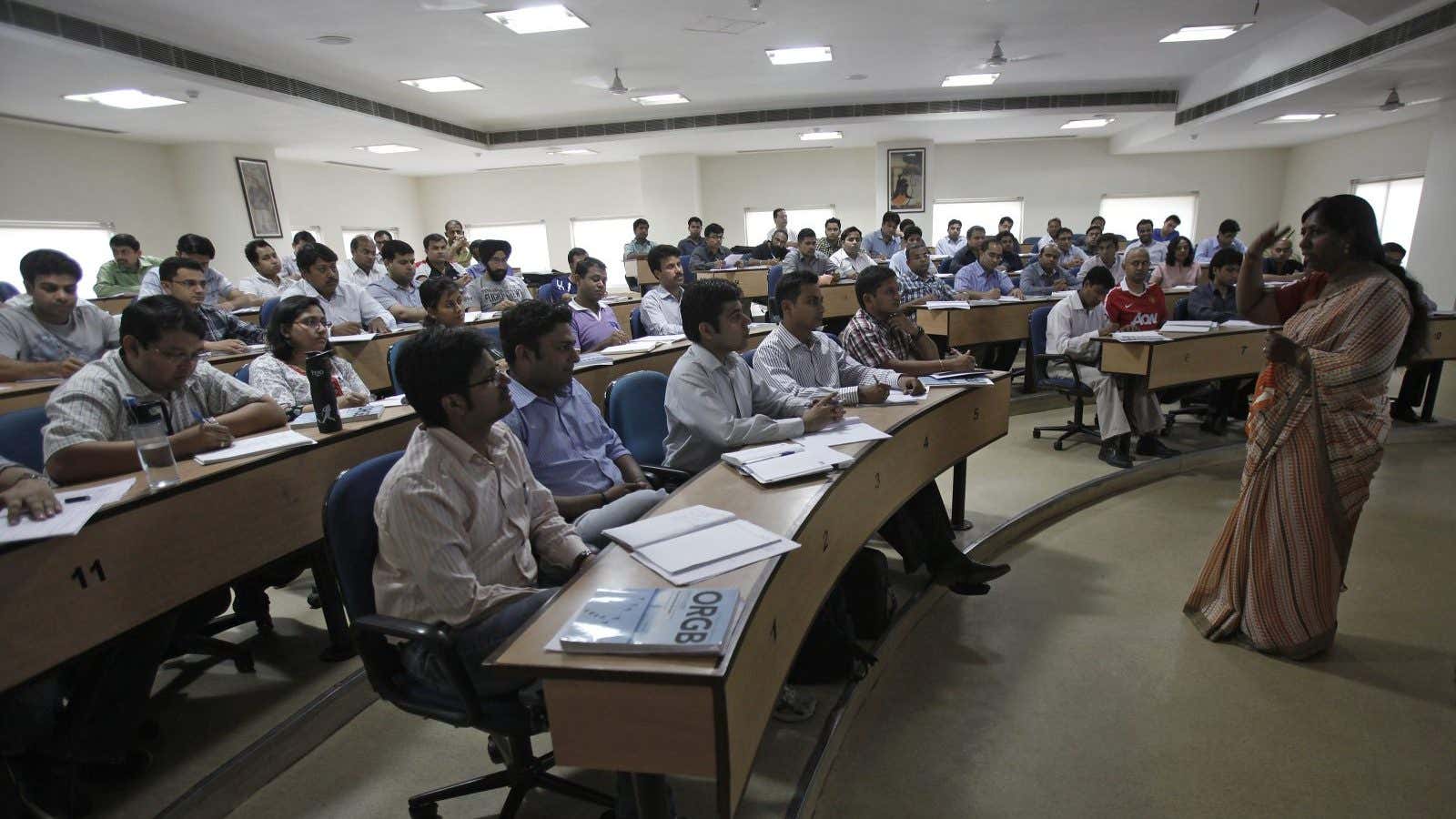Management graduates from India’s second-rung business schools are struggling to find jobs.
Only 20% of students graduating from B-category management schools—those outside the top 30 list—have got job offers so far, “making this the most challenging placement season in recent years,” a recent study by trade body Assocham said. The placement season at business schools in India typically begins in mid-November and goes on till mid-January.
“In sync with demonetisation, lacklustre business sentiment and stalling of new projects have led to drying up of job opportunities for B-category business schools which are struggling hard for placement,” the report added. While the Indian economy has picked up since it took two hits in recent times—the demonetisation of two high-value currency notes in 2016 and the introduction of the goods and services tax (GST) in July this year—there has been no improvement in job creation.
This placement season, even those who landed jobs have received salary offers between 40% and 45% lower than last year, Assocham said.
But this isn’t the first year that Indian management graduates have found it hard to get jobs. In 2016, campus recruitment at tier-II management schools declined 45% from two years ago, as per Assocham’s earlier estimate.
Assocham, however, did not share the methodology of its latest study. The trade body has over 450,000 members across various industries such as manufacturing, technology, retail, education, and health care, among others. This research was conducted by Assocham’s education council.
The poor placement levels aren’t only because of the state of India’s economy.
The quality of education is only making it worse. “The root cause of the problem is that institutes only focus on filling up seats and do not consider the quality of students at the time of intake,” Assocham said. “Consequently, students think the entire responsibility (of placing students in jobs) lies with the institute.”
Since 2015, over 250 tier-II management institutes have shut shop across cities including Delhi-NCR, Mumbai, Bengaluru, Ahmedabad, Kolkata, Lucknow, and Dehradun. Another 99 are struggling to survive, according to Assocham. This has partly happened because they failed to attract students, given their poor curriculum.
“Institutes will have to improve the infrastructure, train the faculty, work on industry linkages and spend money on research and knowledge and focus more on making students employable rather than employed,” Assocham said in the note.
Meanwhile, at the country’s top business schools, such as the Indian Institutes of Management (IIMs), things are much better. Several multinational companies have made multiple hires from these institutions, with salary packages that are higher compared to last year.
